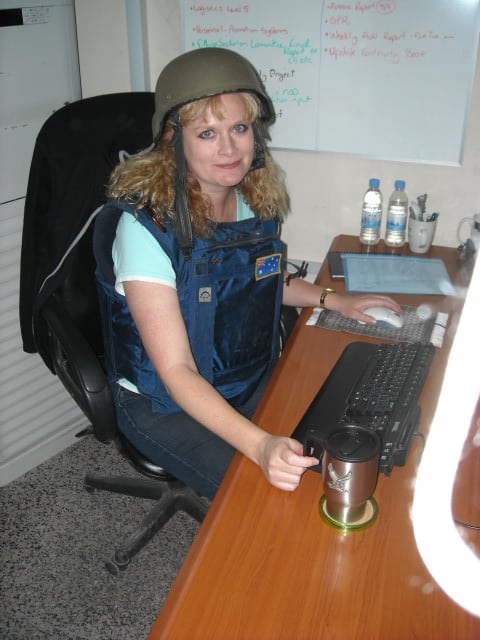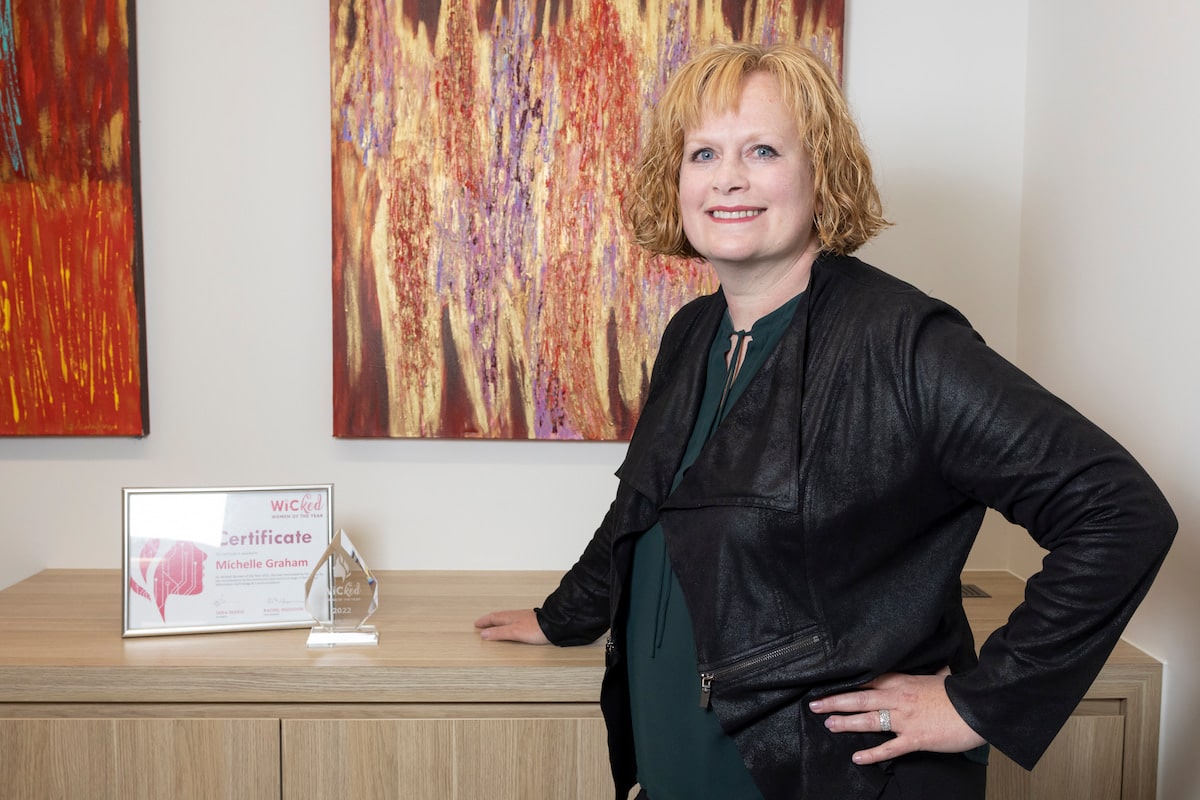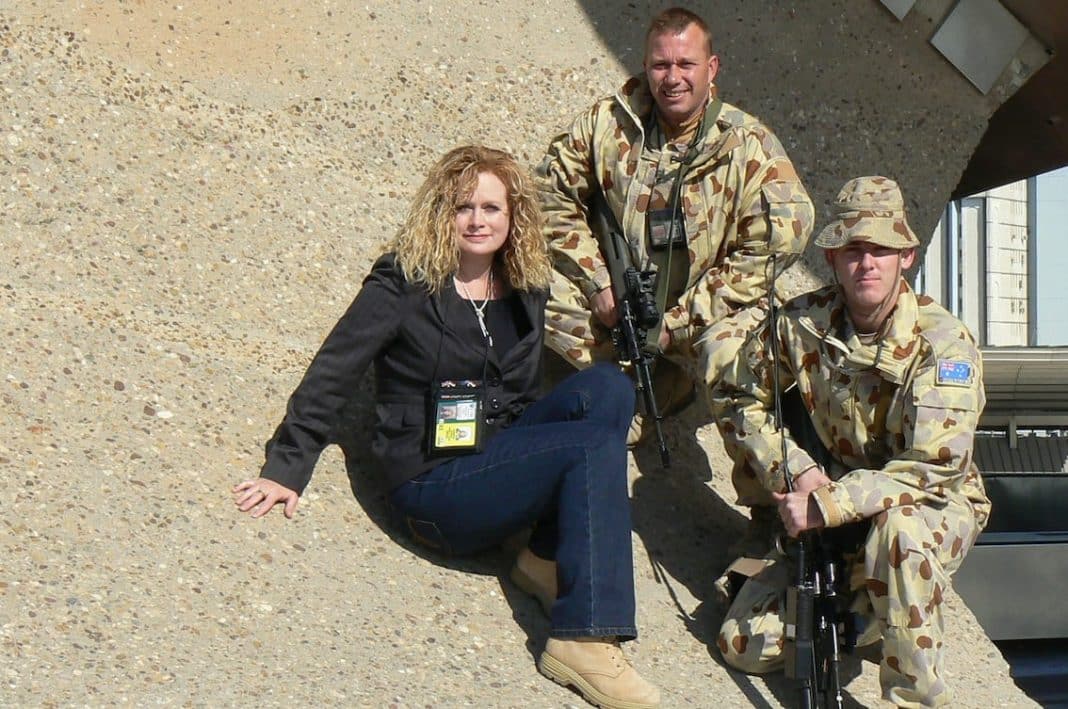When Australia’s Chief Architect for Department of Home Affairs, Michelle Graham, was crowned 2022’s WICked Woman of the Year, she told the women in the crowd to “do something that scares and excites you.”
For Michelle, that was raising her hand for a two-year position in war-torn Iraq.
The WIC in ‘WICked’ stands for Women in Information and Communications Technology.
A far cry from the “guy coding in a hoodie” she says is often associated with IT, Michelle used her expertise in cybersecurity and architecture to advise the Secretary of Defence and Prime Minister of Iraq in 2008.
“We were helping them re-establish their government, but it was a war zone being bombed every day, multiple times a day.
“I did that for almost two years. It was the best job I’ve ever had, and it absolutely frightened me.”
“Eventually, there’s a switch that just seems to occur in your brain … The alarms would sound, which means you’ve got a bomb coming directly at you – an incoming missile or rocket – and it’s going to be very close.
“That happens probably four or five times a day. It’s five seconds of absolute panic, when you just wait to find out whether it’s hit you. And then when it doesn’t, you get on with your day.

“But there are people that get there, and they can’t make the switch. They end up going back, usually leaving within a month.”
During her time in Iraq, Michelle led the eradication of landmines that surrounded the city of Baghdad.
“[For years] before I arrived, the coalition had tried to get rid of them, but they weren’t having much luck because the Iraqis had other priorities.”
Michelle found she had a unique opening to develop a close working relationship with leaders in the Iraqi government, in a setting that was out of bounds for her male colleagues: family functions.
“Quite a few people thought that because I’m a woman, it would be too difficult, but it ended up being the opposite because I was allowed to spend time with their families.
“I was allowed to see their women, to be in their homes with them where a male could not. I ended up getting invited to a whole range of things that other people didn’t.”
She sought to understand what these priorities of the senior leaders were, their family systems, and how they affected what was most important to them.
“The Iraqi people were just like us,” said Michelle. “They wanted running water, electricity, to just get their children to school.
“Eventually, they agreed. We got the Red Cross in and got the landmine removal program happening in an area where every day there were children playing, where locals were coming in and out of the green zone.”
She returned to Australia with an Outstanding Civilian Service Medal for her efforts.
Changing perceptions of women in tech
While being the only woman in the room helped her in Iraq, Michelle said this was the greatest challenge she faced at the beginning of her career.
“Eventually, you just get over it and get on with it, but as a younger person, without realising it, we look for people who are like us.
“We think ‘If they could do that, I could do that’.
“I’m really grateful for the mentors I’ve had, but almost without exception, they were men. There just wasn’t anybody else at the senior leadership level to ask questions, to encourage me, and kick me up the backside when I needed it.
“It was just pure tenacity and stubbornness that kept me going.”
From being the only woman in her PhD cohort, to being the only female Chief Architect in federal government. Michelle is dedicated to becoming the female mentor she was missing.

However, she noted, the problem of not enough women in STEM goes back to primary education.
“It’s really difficult to encourage people [towards STEM] once they’ve gotten careers already, because the kind of background you need starts very early.
“Will we ever get to equality in numbers? In the short term, I doubt it,” said Michelle. “There’s a pipeline problem. We just do not have enough girls coming out of primary school and high school choosing the right subjects to go into STEM degrees.”
Five years ago, Michelle attended a forum of 800 high school students on behalf of the University of Adelaide.
After sharing her colourful career path, she was swarmed by a group of young girls at the end of the presentation.
“They actually said to me, ‘We had no idea a woman could do that!’
“What struck me the most at that university forum was that the next generation’s perception of what a woman in IT looks like is wrong.
“IT is so much broader than coding in a dark room,” said Michelle.
“If you think about our lifestyles today, there is almost nothing that doesn’t have a technology aspect to it anymore.
“We need to get role models out there so that they can visually see that this is what you can do with an IT degree.”
She says that, for WICked women, the sky is the limit.
Canberra Daily would love to hear from you about a story idea in the Canberra and surrounding region. Click here to submit a news tip.



